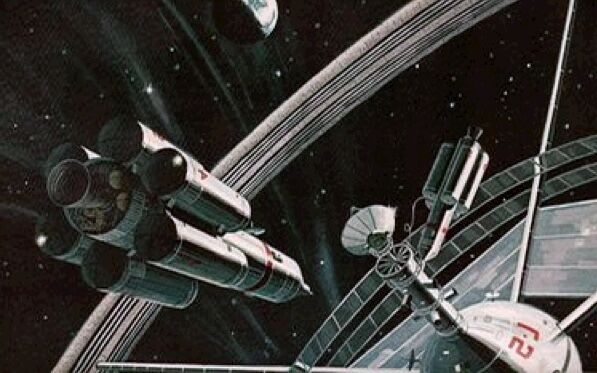Shiralkar: Science fiction is literally a literary oracle
March 14, 2021
Arthur C. Clarke was the madman behind the phrase “any sufficiently advanced technology is indistinguishable from magic.” A pioneer of the literary landscape of his time, Clarke died in 2008, leaving behind a rich legacy of science fiction such as “2001: A Space Odyssey” and similar, rousing literature. The phrase is one of three laws Clarke put forth, another of which is as follows: “The only way of discovering the limits of the possible is to venture a little ways past them into the impossible.” And he was right — both times.
Writers are fascinating creatures — one should be unable to predict what whimsical narrative might take birth in their heads next (or if any at all, on most weekdays). Influencing the development of future technology is a tedious task. Still, we’re not short on books that directly inspired some technologies decades in advance.
In a short story from 1898, Mark Twain describes what can plausibly be assumed to be the current concept of the internet. George Orwell’s “1984” is famous for its idea of a widespread surveillance machine, which is coming true even as you’re reading this. In “Fahrenheit 451” (1953), Ray Bradbury comes up with little devices that fit into your ears and play different sounds — dozens of other examples will imply the same thing: clairvoyance.
As a genre, sci-fi has the innate nature of speculation and fantasy. Space exploration was a popular thing before it was real. Uniquely, works of science fiction are the closest to making predictions about technology. Best-selling urban fantasy may not preclude the existence of troublesome demigods and law-abiding magicians, but science fiction actually manages to tiptoe back and forth over the line between the possible and impossible.
It’s very cool, I think, the idea that some person just sat down at a desk and — having gently tugged the future out of thin air — wrote about things that would inevitably exist in the years to come. If you access the archives of tech magazines and publications that covered technology, in many cases, the development is almost analogous to that of science fiction publications from years ago. Aliens are another matter altogether, of course. So far.
Literary science fiction is a quiet pillar of modern society and should be treated as such. Predictive abilities notwithstanding, cyberpunk is one of the most stylish and enjoyable things to come out of the genre. There will always be sci-fi that was written purely for fun and also sci-fi that lingers at the edge of possibility. It’s up to the readers to watch out — perhaps it is no coincidence that the unironic synonym of clairvoyance is prescience.
Wash your hands and wear a mask.

















